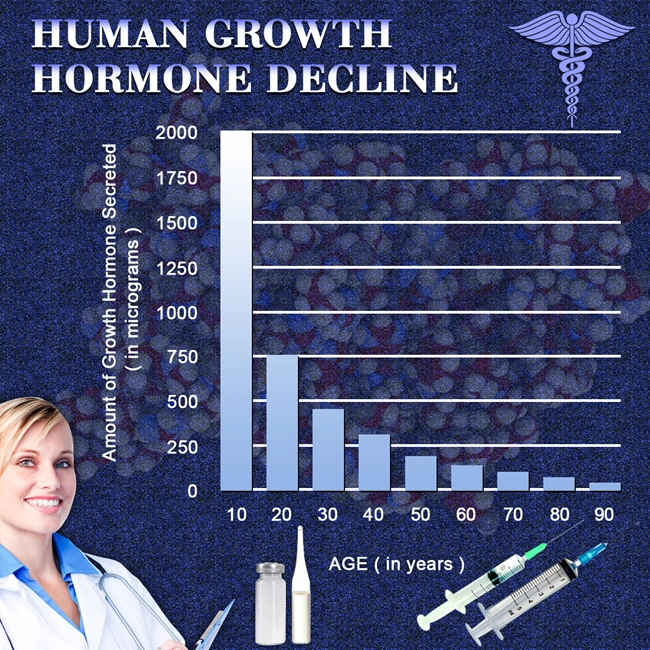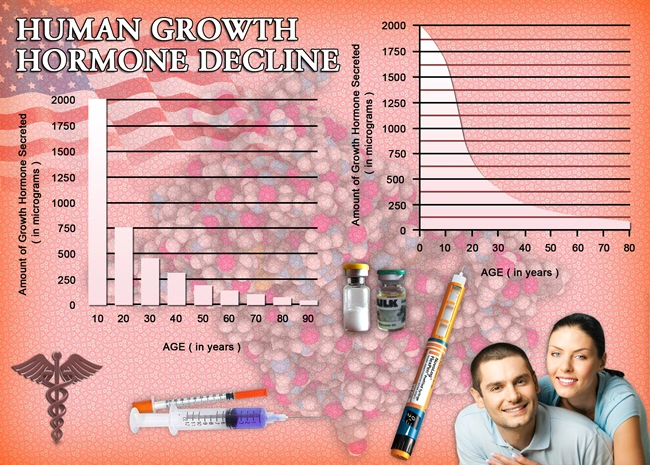
Introduction to Stroke in Men
Stroke, a leading cause of death and disability in the United States, poses a significant health risk to American men. Characterized by the sudden interruption of blood flow to the brain, strokes can lead to severe outcomes, ranging from temporary weakness to permanent paralysis and cognitive impairment. Understanding the unique risk factors and preventive measures tailored for men is crucial in mitigating this threat.
Prevalence and Impact on American Men
Strokes are not only prevalent but also particularly devastating among American men. According to the American Heart Association, men have a higher incidence of stroke compared to women, with approximately 55,000 more strokes occurring in men annually. The impact of stroke on men's health extends beyond physical limitations, affecting their ability to work, engage in family life, and maintain independence.
Key Risk Factors for Men
Several risk factors contribute to the increased likelihood of stroke among American men. **Hypertension**, or high blood pressure, stands out as the most significant modifiable risk factor. It is estimated that about half of American men have hypertension, yet many are unaware of their condition or fail to manage it effectively. **Smoking** is another critical risk factor, with male smokers facing a higher risk of stroke than non-smokers. Additionally, **diabetes**, **obesity**, and **high cholesterol** levels further elevate the risk, often co-occurring and compounding the danger.
Lifestyle and Behavioral Risks
American men's lifestyle choices play a pivotal role in stroke risk. **Sedentary behavior** and **poor dietary habits**, such as high intake of sodium and saturated fats, contribute to the development of risk factors like obesity and hypertension. **Excessive alcohol consumption** and **stress** also increase stroke risk, with men often facing higher levels of occupational and social stress.
Genetic and Age-Related Factors
While lifestyle factors are modifiable, **genetic predisposition** and **age** are non-modifiable risk factors that men must be aware of. A family history of stroke significantly increases an individual's risk, necessitating heightened vigilance and preventive measures. As men age, the risk of stroke escalates, with the majority of strokes occurring in individuals over the age of 65.
Strategies for Stroke Prevention
Preventing stroke requires a multifaceted approach, focusing on both lifestyle modification and medical management. **Regular health screenings** are essential for early detection and management of risk factors like hypertension and high cholesterol. **Adopting a heart-healthy diet**, rich in fruits, vegetables, whole grains, and lean proteins, can help manage weight and reduce the risk of obesity and diabetes. **Regular physical activity** is crucial, with recommendations suggesting at least 150 minutes of moderate aerobic activity per week.
Smoking Cessation and Alcohol Moderation
For men who smoke, **quitting smoking** is one of the most impactful steps they can take to reduce their stroke risk. Smoking cessation programs and nicotine replacement therapies can aid in this process. Similarly, **moderating alcohol consumption** to no more than two drinks per day can help mitigate the risk associated with excessive drinking.
Medical Management and Awareness
Men should work closely with healthcare providers to manage conditions like hypertension and diabetes through medication and lifestyle adjustments. **Awareness of stroke symptoms**, such as sudden numbness, confusion, difficulty speaking, and severe headaches, is critical for seeking timely medical intervention.
Conclusion: Empowering Men to Take Action
Stroke remains a formidable threat to the health and well-being of American men. By understanding the specific risk factors and adopting comprehensive preventive strategies, men can significantly reduce their risk of stroke. Empowering men with knowledge and encouraging proactive health management are essential steps in combating this silent threat and promoting a healthier future for all American men.
Contact Us Today For A Free Consultation
Dear Patient,
Once you have completing the above contact form, for security purposes and confirmation, please confirm your information by calling us.
Please call now: 1-800-380-5339.
Welcoming You To Our Clinic, Professor Tom Henderson.

- Understanding and Treating Erectile Dysfunction: Causes, Diagnosis, and Options for American Men [Last Updated On: February 25th, 2025] [Originally Added On: February 25th, 2025]
- Top Fitness Trends Transforming American Men's Health and Well-being [Last Updated On: March 17th, 2025] [Originally Added On: March 17th, 2025]
- Understanding Male Infertility: Causes, Diagnosis, and Treatment Options for American Men [Last Updated On: March 18th, 2025] [Originally Added On: March 18th, 2025]
- Physical Activity's Role in Cancer Prevention for American Men: Strategies and Benefits [Last Updated On: March 18th, 2025] [Originally Added On: March 18th, 2025]
- Hydration's Vital Role in Enhancing Men's Health and Well-being in America [Last Updated On: March 18th, 2025] [Originally Added On: March 18th, 2025]
- Osteoporosis in Men: Risks, Prevention, and Strategies for Bone Health [Last Updated On: March 18th, 2025] [Originally Added On: March 18th, 2025]
- Essential Supplements for Men's Health: A Comprehensive Guide for American Males [Last Updated On: March 19th, 2025] [Originally Added On: March 19th, 2025]
- Stress and Heart Health: Impacts and Management Strategies for American Men [Last Updated On: March 19th, 2025] [Originally Added On: March 19th, 2025]
- Gout in American Men: Symptoms, Causes, and Management Strategies [Last Updated On: March 21st, 2025] [Originally Added On: March 21st, 2025]
- Breaking the Stigma: Enhancing Mental Health Support for American Men [Last Updated On: March 21st, 2025] [Originally Added On: March 21st, 2025]
- Sleep Apnea in American Men: Symptoms, Risks, and Management Strategies [Last Updated On: March 21st, 2025] [Originally Added On: March 21st, 2025]
- Work-Life Balance: Impact on American Men's Health and Strategies for Improvement [Last Updated On: March 21st, 2025] [Originally Added On: March 21st, 2025]
- Allergies in American Men: Symptoms, Management, and Impact on Quality of Life [Last Updated On: March 22nd, 2025] [Originally Added On: March 22nd, 2025]
- Meditation's Impact on Men's Mental Health: Benefits and Integration Strategies [Last Updated On: March 22nd, 2025] [Originally Added On: March 22nd, 2025]
- Gut Health Essentials for American Men: Microbiome, Diet, and Wellness [Last Updated On: March 22nd, 2025] [Originally Added On: March 22nd, 2025]
- Strength Training: Enhancing Men's Health in the U.S. with Resistance Exercises [Last Updated On: March 22nd, 2025] [Originally Added On: March 22nd, 2025]
- Alcohol's Impact on Liver Health: Risks, Stages, and Prevention for American Males [Last Updated On: March 22nd, 2025] [Originally Added On: March 22nd, 2025]
- High Cholesterol in American Men: Risks, Management, and Prevention Strategies [Last Updated On: March 23rd, 2025] [Originally Added On: March 23rd, 2025]
- Enhancing Men's Mental Health in the Workplace: Challenges and Strategies [Last Updated On: March 23rd, 2025] [Originally Added On: March 23rd, 2025]
- Obesity and Cancer Risks in American Men: Understanding and Mitigation Strategies [Last Updated On: March 23rd, 2025] [Originally Added On: March 23rd, 2025]
- Dietary Fiber: Essential for Men's Health and Disease Prevention [Last Updated On: March 23rd, 2025] [Originally Added On: March 23rd, 2025]
- Kidney Stones in American Men: Prevention, Management, and Health Strategies [Last Updated On: March 24th, 2025] [Originally Added On: March 24th, 2025]
- Effective Smoking Cessation Strategies for American Men's Health and Well-being [Last Updated On: March 24th, 2025] [Originally Added On: March 24th, 2025]
- Mental Health Days: Essential for American Men's Well-being and Productivity [Last Updated On: March 24th, 2025] [Originally Added On: March 24th, 2025]
- Plant-Based Diets: Enhancing Men's Health from Heart to Mind [Last Updated On: March 25th, 2025] [Originally Added On: March 25th, 2025]
- Dental Health's Crucial Role in Men's Overall Well-being and Disease Prevention [Last Updated On: March 25th, 2025] [Originally Added On: March 25th, 2025]
- Tai Chi: Enhancing Men's Health in the U.S. - Physical, Mental, Cognitive Benefits [Last Updated On: March 25th, 2025] [Originally Added On: March 25th, 2025]
- Diet's Impact on Prostate Health: Foods to Embrace and Avoid [Last Updated On: March 25th, 2025] [Originally Added On: March 25th, 2025]
- Annual Physicals: Vital for Men's Health, Early Detection, and Personalized Care [Last Updated On: March 25th, 2025] [Originally Added On: March 25th, 2025]
- Managing Anxiety in American Men: Tools and Techniques for Mental Health [Last Updated On: March 25th, 2025] [Originally Added On: March 25th, 2025]
- Depression in American Men: Holistic Treatment Approaches and Breaking Stigma [Last Updated On: March 25th, 2025] [Originally Added On: March 25th, 2025]
- Asthma in American Men: Prevalence, Management, and Lifestyle Impact [Last Updated On: March 26th, 2025] [Originally Added On: March 26th, 2025]
- Seasonal Affective Disorder in American Men: Symptoms, Impact, and Management Strategies [Last Updated On: March 26th, 2025] [Originally Added On: March 26th, 2025]
- Gut-Brain Axis: Stress Impact on Digestive Health in American Males [Last Updated On: March 26th, 2025] [Originally Added On: March 26th, 2025]
- Exercise Benefits for American Men Managing Diabetes: Enhancing Health and Well-being [Last Updated On: March 26th, 2025] [Originally Added On: March 26th, 2025]
- Proactive Health Strategies for American Men: Screenings, Lifestyle, and Mental Well-being [Last Updated On: March 26th, 2025] [Originally Added On: March 26th, 2025]
- Caffeine's Impact on American Men: Health, Performance, and Consumption Guidelines [Last Updated On: March 26th, 2025] [Originally Added On: March 26th, 2025]
- Diet and Heart Disease Prevention in American Males: Key Components and Recommendations [Last Updated On: March 26th, 2025] [Originally Added On: March 26th, 2025]
- Pilates: Enhancing Men's Health and Fitness in the U.S. [Last Updated On: March 26th, 2025] [Originally Added On: March 26th, 2025]
- Cycling Benefits for American Men: Health, Fitness, and Well-being [Last Updated On: March 27th, 2025] [Originally Added On: March 27th, 2025]
- Insomnia's Impact on Men's Health: Causes, Effects, and Management Strategies [Last Updated On: March 27th, 2025] [Originally Added On: March 27th, 2025]
- Swimming: Enhancing Men's Health in America Through Fitness and Wellness [Last Updated On: March 27th, 2025] [Originally Added On: March 27th, 2025]
- Hemorrhoids in American Men: Causes, Symptoms, and Management Strategies [Last Updated On: March 27th, 2025] [Originally Added On: March 27th, 2025]
- Sleep's Crucial Role in Weight Management for American Men [Last Updated On: March 27th, 2025] [Originally Added On: March 27th, 2025]
- Eye Exams: Essential for Men's Vision and Overall Health Monitoring [Last Updated On: March 28th, 2025] [Originally Added On: March 28th, 2025]
- Arthritis in Men: Prevention, Management, and Enhancing Quality of Life [Last Updated On: March 28th, 2025] [Originally Added On: March 28th, 2025]
- Promoting Men's Mental Health: The Urgent Need for Regular Screening and Support [Last Updated On: March 28th, 2025] [Originally Added On: March 28th, 2025]
- Varicose Veins in American Men: Causes, Symptoms, and Treatment Options [Last Updated On: March 28th, 2025] [Originally Added On: March 28th, 2025]
- Social Connections: Vital for American Men's Mental Health and Well-being [Last Updated On: March 29th, 2025] [Originally Added On: March 29th, 2025]
- Hiking's Comprehensive Health Benefits for American Men: Physical, Mental, and Social [Last Updated On: March 31st, 2025] [Originally Added On: March 31st, 2025]
- Rowing: Enhancing Health and Fitness for American Men [Last Updated On: April 1st, 2025] [Originally Added On: April 1st, 2025]
- Pollution's Multifaceted Impact on American Men's Health: Risks and Mitigation Strategies [Last Updated On: April 1st, 2025] [Originally Added On: April 1st, 2025]
- Antioxidants: Key to Health for American Men - Heart, Cancer, Aging, Eye Benefits [Last Updated On: April 1st, 2025] [Originally Added On: April 1st, 2025]
- Breaking Stigma: The Vital Role of Mental Health Education for American Men [Last Updated On: April 2nd, 2025] [Originally Added On: April 2nd, 2025]
- Understanding and Managing Migraines in American Men: Symptoms, Triggers, and Strategies [Last Updated On: April 4th, 2025] [Originally Added On: April 4th, 2025]
- Skin Cancer in American Men: Risks, Prevention, and Early Detection Strategies [Last Updated On: April 5th, 2025] [Originally Added On: April 5th, 2025]
- Alcohol and Mental Health in American Males: A Bidirectional Impact and Solutions [Last Updated On: April 6th, 2025] [Originally Added On: April 6th, 2025]
- Community Impact on American Men's Health and Wellbeing: Support, Prevention, and Engagement [Last Updated On: April 6th, 2025] [Originally Added On: April 6th, 2025]
- Preventing and Managing Back Pain in American Men: Causes, Strategies, and Lifestyle Tips [Last Updated On: April 8th, 2025] [Originally Added On: April 8th, 2025]
- Martial Arts: Enhancing Men's Health and Wellness in the U.S. [Last Updated On: April 9th, 2025] [Originally Added On: April 9th, 2025]
- Technology Reshaping Men's Health: Telemedicine, Wearables, and Digital Apps in the U.S. [Last Updated On: April 11th, 2025] [Originally Added On: April 11th, 2025]
- Managing Panic Attacks: Strategies and Support for American Men [Last Updated On: April 11th, 2025] [Originally Added On: April 11th, 2025]
- Running: Enhancing Men's Health from Heart to Mind in America [Last Updated On: April 11th, 2025] [Originally Added On: April 11th, 2025]
- Men's Hearing Health: Risks, Prevention, and Technological Solutions [Last Updated On: April 12th, 2025] [Originally Added On: April 12th, 2025]
- Essential Vitamins for Men's Health: Enhancing Well-being and Preventing Disease [Last Updated On: April 12th, 2025] [Originally Added On: April 12th, 2025]
- Obesity and Diabetes in American Men: Risks, Impacts, and Management Strategies [Last Updated On: April 12th, 2025] [Originally Added On: April 12th, 2025]
- Soccer's Impact on Men's Health: Cardiovascular, Muscle, and Mental Benefits [Last Updated On: April 15th, 2025] [Originally Added On: April 15th, 2025]
- Managing IBS in American Men: Symptoms, Triggers, and Effective Strategies [Last Updated On: April 15th, 2025] [Originally Added On: April 15th, 2025]
- Lung Cancer in American Men: Risks, Symptoms, Prevention, and Treatment Strategies [Last Updated On: April 15th, 2025] [Originally Added On: April 15th, 2025]
- Diet and Mental Health: Key Insights for American Men's Well-being [Last Updated On: April 16th, 2025] [Originally Added On: April 16th, 2025]
- Obesity and Heart Disease in American Men: Risks, Mechanisms, and Prevention Strategies [Last Updated On: April 17th, 2025] [Originally Added On: April 17th, 2025]
- Basketball's Health Benefits for American Men: Physical, Mental, and Social Wellness [Last Updated On: April 17th, 2025] [Originally Added On: April 17th, 2025]
- Transforming Men's Health: Tailored Mental Health Awareness Campaigns for American Men [Last Updated On: April 18th, 2025] [Originally Added On: April 18th, 2025]
- Mental Health First Aid: A Vital Tool for American Men's Well-being [Last Updated On: April 18th, 2025] [Originally Added On: April 18th, 2025]
- Family Support: Enhancing Health and Well-being of American Men [Last Updated On: April 18th, 2025] [Originally Added On: April 18th, 2025]
- CrossFit: Enhancing Men's Health Through Comprehensive Fitness Regimen [Last Updated On: April 19th, 2025] [Originally Added On: April 19th, 2025]
- Joint Pain in Men: Causes, Prevention, and Management Strategies for American Males [Last Updated On: April 20th, 2025] [Originally Added On: April 20th, 2025]









